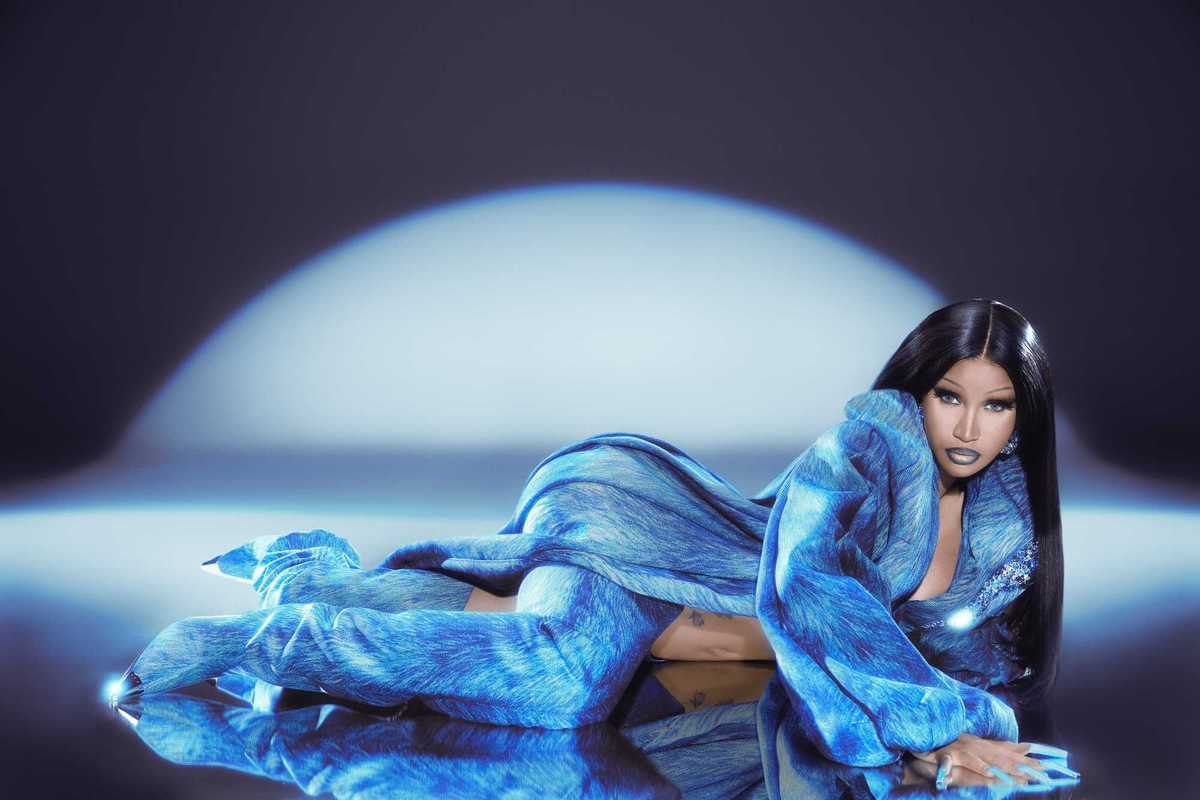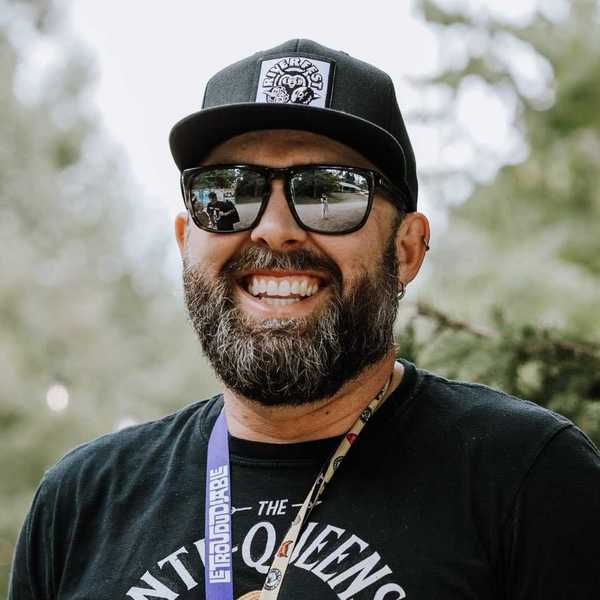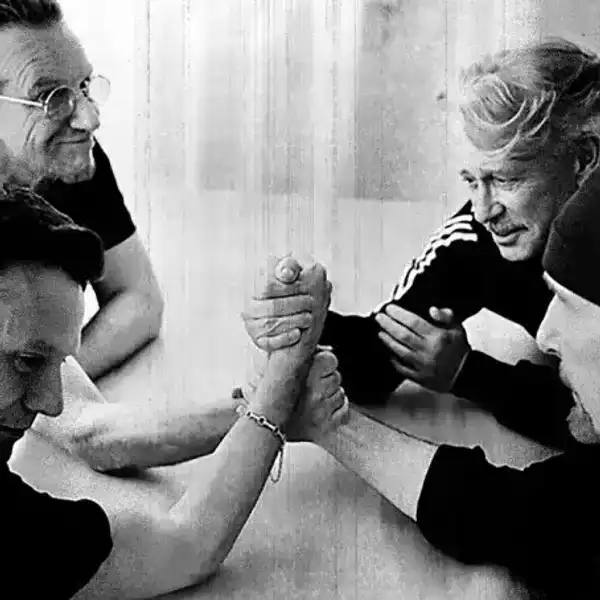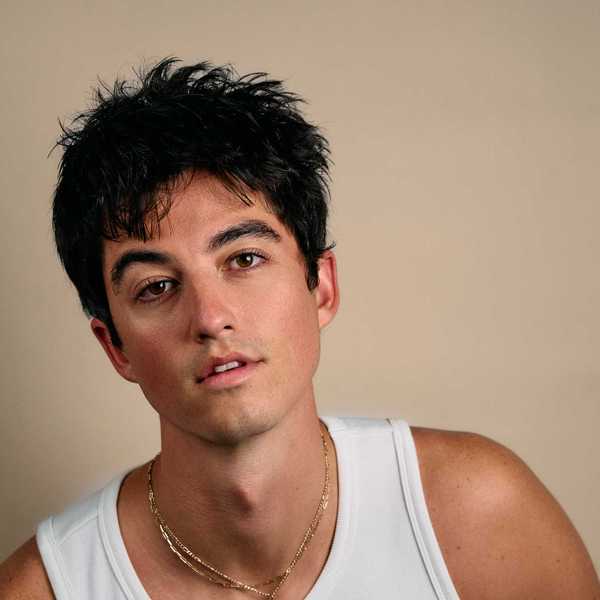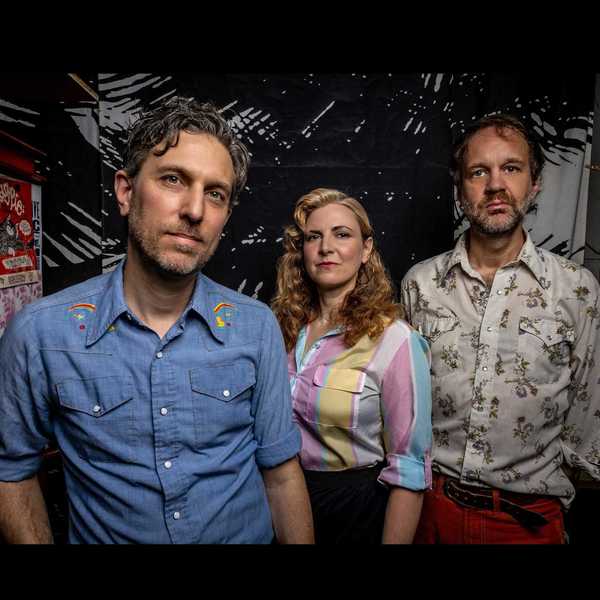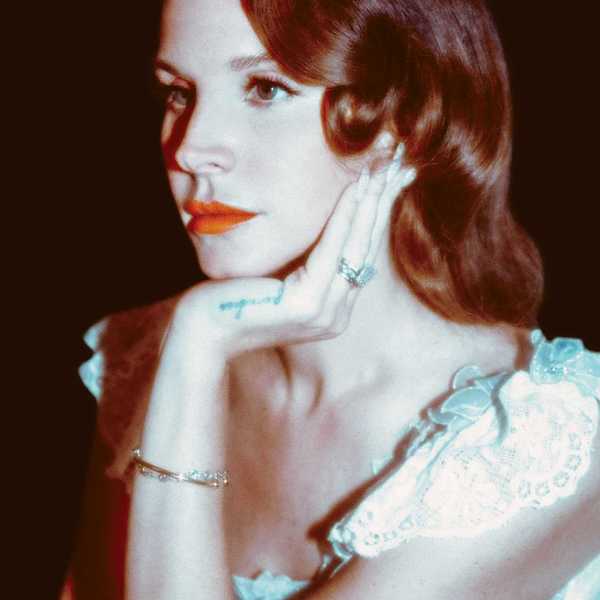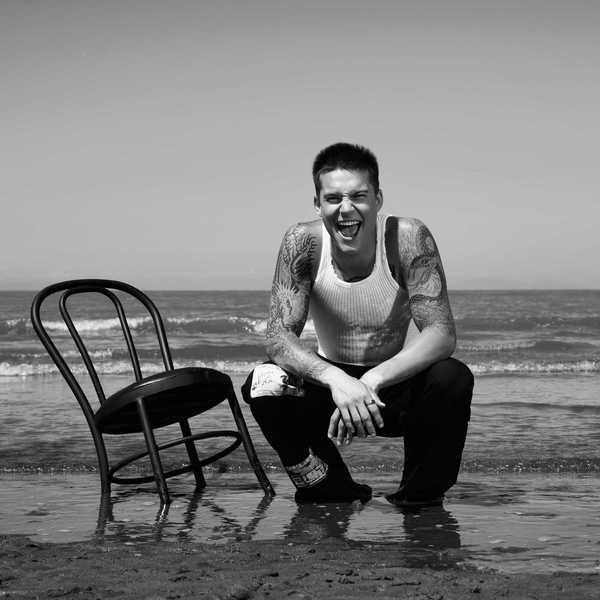Obituary: Prism Drummer and 'F**K Cancer' Advocate Rocket Norton
This week we also acknowledge the passing of Ultravox bassist Chris Cross, drummer/producer Keith LeBlanc, counterculture hero John Sinclair and rock vocalist CJ Snare.
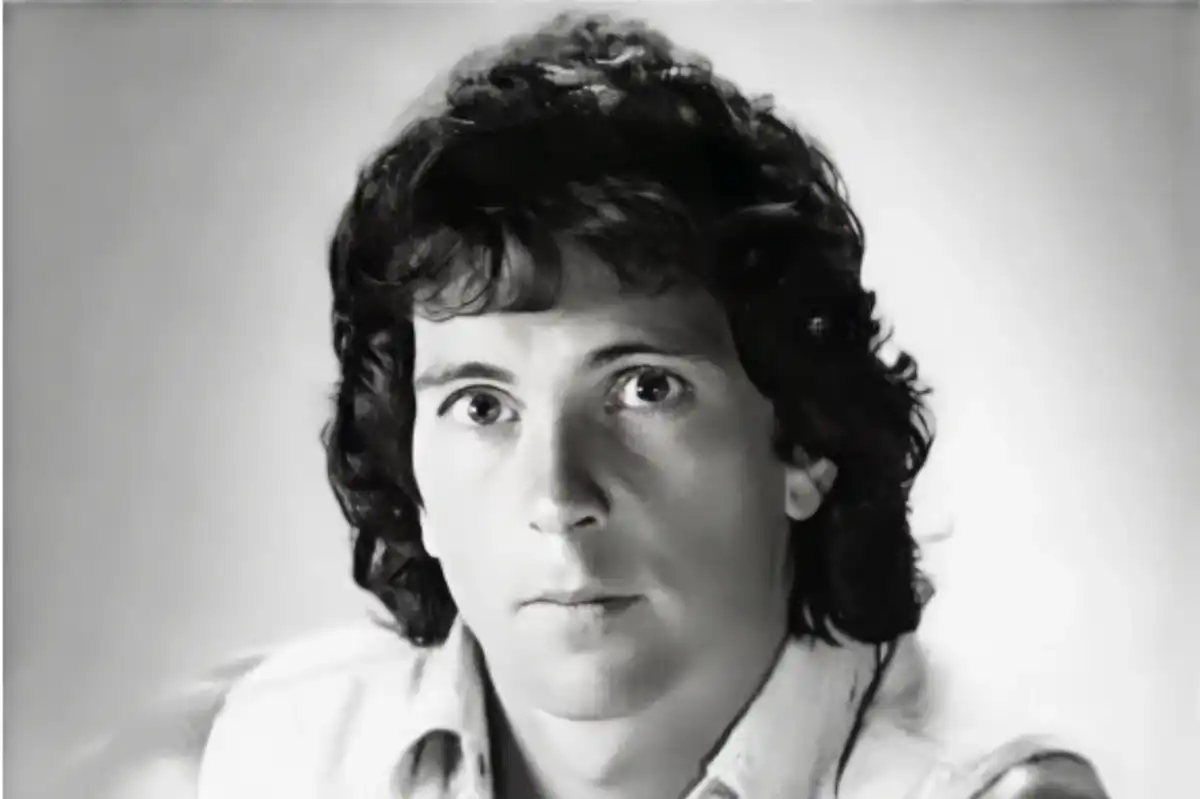
Rocket Norton
Rocket Norton (born Gary Wanstall), a Vancouver musician, author and entrepreneur best known as the drummer for Prism, died on April 5, at age 73. He was diagnosed with cancer in 2021.
Norton was born in Chilliwack and grew up in the Vancouver neighbourhoods of Kerrisdale and Kitsilano. After choosing his stage name, Norton co-founded the rock band, Seeds of Time, in 1965. As reported on the Citizen Freak website, Norton was 15 at the time, and said "I thought I was going to be a dentist. I had no idea I was going to spend the next 50 years playing drums in a rock band!"
Two years later, as the hippie scene exploded, the Seeds of Time hit the road to play gigs. The group's debut single, "My Hometown," came out in 1969 and was a moderate hit. Another single, "Cryin' The Blues," fared a little better, but there was no big commercial breakthrough. As Norton later candidly admitted, "by 1975 drug & alcohol abuse took its toll. The band didn’t break up; fittingly, it just OD-ed." In 1991, a compilation CD of Seeds of Time material, Immortal, was released.
Norton's next move was to found the Rocket Norton Band, recruiting keyboardist John Hall, guitarist/vocalist, Jerry Doucette and bassist/vocalist, Rick Enns. A top band in Vancouver’s thriving nightclub scene, the group had a hit single with ‘Summer In the City,’ the first record release by budding producer, Bruce Fairbairn. The band lasted a couple of years before calling it a day, and Doucette would later gain success as a solo artist.
As Norton later recalled, "Like some cheesy fairytale, there was a happy ending for Hall and me as we rejoined Lindsay Mitchell and became Prism, a group that produced 16 charted singles and sold over 2 million records in 6 short years. "
It is for his work with Prism that Norton is best known. He was not in the original 1976 lineup of the band, which was first put together by musician-producer Fairbairn, and featured Jim Vallance (later a hit songwriter with Bryan Adams) on drums. Mitchell was the original lead vocalist, but was replaced in that role by Ron Tabak (Mitchell remained on guitar).
After multiple personnel changes, the lineup considered the classic Prism grouping comprised Ron Tabak, guitarist Mitchell keyboardist John Hall, bassist Allen Harlow and drummer Rocket Norton. Though he resigned as drummer in late 1977, Vallance remained as principal songwriter. Other notable B.C. musicians involved with the group early on included Tom Lavin (later head of Powder Blues Band), Ab Bryant (Chilliwack, Headpins) and Bryan Adams, who contributed some songs to Prism releases.
Prism signed to GRT Records in 1976, and Fairbairn produced the group's debut album, one primarily written by Vallance. The self-titled Prism album was released on GRT (Ariola Records in the U.S.) in May 1977.
The heyday of the band was from 1977 to 1984, though, after a hiatus, it became active again from 1987 to present.
Aside from reaching the U.S. top 40 charts with 1981's "Don't Let Him Know," Prism's success was largely confined to Canada, where they had a major impact, became a staple on rock radio, and won a Juno Awards for Group of the Year in 1981. The group received six other Juno nominations. The band's status as hometown heroes was showcased when August 18, 1979, was dubbed PRISM DAY in Vancouver by Mayor Jack Volrich.
Prism songs that became classic rock favourites include "Spaceship Superstar," "Take Me to the Kaptin," "Flying," "Armageddon," "Take Me Away," "Young & Restless," "Night to Remember" and "Don’t Let Him Know."
Norton was in the reconfigured Prism lineup that released the first new Prism album in 10 years, 1993's Jericho. He left the band in 1994 to work in television and stage production, then had a very brief return in 1997. A version of the group headed by Al Harlow continues to play shows.
In March 2011, Prism returned to the headlines when the band's 1977 song "Spaceship Superstar" was chosen as the wake-up song for the Space Shuttle Discovery.
In its obituary of Norton, the Vancouver Is Awesome website noted that "Norton shifted into more behind-the-scenes work, becoming music director at CKVU-TV. He produced a Beatles tribute band for Expo 86 that went on to perform for years to come, and the studio band he led, Rocky and The Jets, backed many international music stars at EXPO 86. The producer of many shows and special musical events, in 1994, Norton became the General Manager of the Vogue Theatre on Granville Street in Vancouver, and transformed it from a dark movie theatre into a viable concert hall for music and theatrical plays."
With Skip Prest and John Hall, Norton co-wrote the musical Visions: Mission Andromeda, described as "the first musical production in the world to perform live in sync with the computer laser light show." It spawned 27 sold-out shows at the Vancouver Planetarium, and the music was performed with the Vancouver Symphony Orchestra in a sold-out concert at the Queen Elizabeth Theatre in 1987. The work was released as a vinyl album in 1987.
Norton continued to compose and producer, and he wrote and published multiple books, including Rocket Norton: Lost in Space (a memoir), Live~Love~Die, He Was More Than He Seemed and Torch.
After receiving his cancer diagnosis, Norton spearheaded two star-studded concert fundraisers that netted the B.C. Cancer Foundation a phenomenal $640,000 plus. The 2022 fundraiser filled the Hard Rock Casino Theatre in Coquitlam, and the 2023 sequel was held at the Centre for the Performing Arts in Vancouver. Participating artists included members of Chilliwack, Doug & the Slugs, Headpins, Jeff Neill, Jim Byrnes, Lee Aaron, Loverboy, Powder Blues, Trooper and Prism.
In a Billboard Canada interview with David Farrell in 2023, Norton recalled the origin of the benefits.
"My original thought was to get some musicians together, and we’d play in a club, but word got out, and musicians started calling me saying they wanted in too, so it evolved into the first F**K Cancer concert last year [2022] with 33 musicians and nine of the biggest classic rock acts on the bill. It was fantastic, electric, and we raised just over $344,000.”
Those supporting Norton in the endeavour included local impresario Bill Allman, former Prism manager Bruce Allen and philanthropist Alex Blodgett.
A second annual F**K Cancer concert, at the Centre for the Performing Arts in Vancouver on Oct. 21, 2023, raised an additional $300,000-plus.
Rocket Norton was honoured with a star on Granville Street by the BC Entertainment Hall of Fame in 2023, and he and his bandmates in Prism were honoured with a star in Toronto on Canada's Walk of Fame.
For the Walk of Fame celebration in Toronto, Norton took to the stage to lead the crowd in a defiant and expletive-charged chant against cancer.
Rocket Norton was very popular amongst his Vancouver music peers, and they were quick to pay homage as they learned of his death.
Loverboy's Paul Dean offered this tribute to Billboard Canada: "Rocket was an inspiration to us all, especially in his founding of the Vancouver chapter of f¥<k cancer. He was undoubtedly the driving force behind the two concerts I was privileged to perform at, tirelessly attending all the rehearsals and sound checks, only to top it off with his joining us on stage during the Oct. 23 event.
"Rocket and his band Prism were also pioneers of the 'Vancouver sound,' which led to so many International artists recording here, their album Armageddon being the true musical signpost for the era. The last time I saw Rocket was in the fall of ’23, at the Rock of Fame ceremony in Toronto. His award for a lifetime of smiles and unabashed energy was richly deserved, not to mention some really good music!"
Another member of Loverboy, Mike Reno, offered this tribute to Billboard Canada: "The passing of Rocket Norton didn’t come as surprise because Rocket was so organized he even planned his own last act. I was deeply moved and affected as I went through my day today. It hit me hard that we lost such a great guy. It really makes you think. For the last couple years Rocket asked if a few of us could help raise money for cancer relief. Say no more Rocket, we are there for you. He will be missed. Great guy."
Music industry veteran Jeff Burns posted this homage on Facebook: "Rocket, as the drummer of Prism, was much more than a new signing for me at GRT RECORDS in 1977. We became great friends over the years and shared many of his visions. I remember when he was diagnosed with cancer and took it upon himself to create and help organize two 'F..K Cancer' Benefit Shows that raised over $640,000 with the help of so many successful artists from Vancouver. Just recently, Prism was inducted into the Walk of Fame Rock Awards where he gave his famous F..K Cancer speech. Rocket knew he was dying from cancer at the show last September but wanted to inspire as many as he could to donate to the BC Cancer Foundation. Rocket ….Love you always. RIP my friend."
Tom Lavin (Powder Blues Band) sent Billboard Canada this tribute: "Rocket and I go back to 1969 when I first moved to Vancouver. Over the years we shared stages many times including being the touring rhythm section for Prism. In recent years we became closer yet, and over the last couple we played F*ck Cancer I & II together. He then invited me to guest with his terrific band the Authentics.
"Ideally, rhythm sections are like a great marriage, and I always loved playing with Rocket, but it goes far beyond that. I loved and respected him for his ceaseless energy for music, literature, theatre and a myriad other pursuits. He was hard-working, courageous throughout his life, unafraid of tackling new challenges, a trait he maintained to the end. I will miss his big kind heart, his optimism, enthusiasm and candidness. Peace and Love Rocket."
Jeffrey Latimer, CEO of Canada's Walk of Fame, gave this tribute to Billboard Canada: "Rocket came into my life only 7 months ago, because we inducted he and his band Prism into Canada’s Walk of Fame. He was sick and close to death when he arrived in Toronto in September and YET he was explosive and impactful to everyone that night, like a teenager on a mission.
"'FUCK CANCER,' he yelled at the audience – and the sold-out crowd at Massey Hall yelled that back.That night, he was kind, he was grateful, he was funny and so 'alive' and upbeat. Last month, I saw him again in Vancouver, more grateful and more beautiful at lunch as we said goodbye for ever. Two meetings with Rocket and I feel like I knew him a lifetime. I am grateful and I am sad……but mostly I am moved by his smile, his passion, his kindness, his talent and his joy…..his joy of people and the good that we all have inside us. Rest in peace my friend – you inspired us all. Thank you, ROCKET, my friend for life."
On Facebook, drummer and one-time Prism member John Cody posted this salute: "Growing up in Vancouver, I saw a lot of local bands, and there was no one cooler to me than Rocket Norton. He was the ultimate rock star. From the Seeds Of Time, which morphed into the Rocket Norton Band, then with Prism, Rocket’s onstage presence was huge. He played with an intense focus, a killer shuffle, and perfect parts for whatever band he was with at the time.
"When Rocket left the reformed Prism back in the early '90s, I got the call and spent a few years having a ball playing his iconic parts. I was always a fan, but I got to know a whole other side of Rocket after he was diagnosed with cancer. His reaction to the terminal diagnosis was to get busy, undertaking the mammoth task of pulling together almost a dozen legendary bands for a memorable cancer benefit concert... He got a couple of extra years, and look what he did with his remaining time. He was already my hero, but more so now than ever. So proud to have called him a friend. Love you, Rocket."
Fans looking to honour Norton's life and work are asked to consider donating to the BC Cancer Foundation.
Chris Cross (Chris Allen), longstanding Ultravox bassist, died on March 25, at age 71.
Born in London, Cross performed in several local bands before helping form Tiger Lilly alongside John Foxx (known then as Dennis Leigh), guitarist Steve Shears, drummer Warren Cann and keyboard player Billy Currie.
Tiger Lilly renamed themselves as Ultravox! in 1976 and secured a record deal with Island Records. The band released three art rock albums, Ultravox! (1977), Ha!-Ha!-Ha! (1977) and Systems Of Romance (1978), prior to Foxx's departure in 1979.
Former Slik and Rich Kids member Midge Ure replaced Foxx, having been working alongside Currie in synth-pop band Visage. Loudersound reports that the move "heralded the band's most commercially successful era, releasing Vienna (1980), Rage In Eden (1981), Quartet (1982) and Lament (1984).
Cross left the band following 1986's U-Vox album, then rejoined the classic Ultravox line-up alongside Ure, Currie and Cann in 2008 and toured successfully on the 2009 Return To Eden tour. The band released a final studio album, Brilliant, in 2012.
Musicians paying tribute to Cross included Waterboy Mike Scott. On Twitter, he posted that "He was a fellow Findhorn Foundation alumni, though our times there didn't overlap. Hardly anyone knows he ran that community's music production in the late 80s + early 90s, running its label & producing albums."
Keith LeBlanc, an American drummer/producer who helped shape the sound of early hip-hop with his playing on albums by the Sugar Hill Gang and Grandmaster Flash, died on April 4, at age 69, of an undisclosed illness.
A Billboard obituary notes that "over the course of a four-decade career that began with his gig working along bassist Doug Wimbish and guitarist Skip 'Little Axe' McDonald as part of the house band for rap pioneers the Sugarhill Gang in the early 1980s, LeBlanc played with and performed on records that spanned electronica, rock and pop."
"In a nod to his versatility, LeBlanc spent the 1980s and 1990s playing sessions with a wide variety of acts, from Ministry to R.E.M., Seal and Annie Lennox, as well as adding his production and engineering expertise to Nine Inch Nails’ landmark 1989 industrial rock classic debut, Pretty Hate Machine."
His solo career included drumming on tracks for English producer Adrian Sherwood’s On-U Sound productions, including on an unexpected underground solo hit in 1983 with “No Sell Out,” which sampled the voice of late Nation of figurehead Malcolm X. It is considered one of the first songs to use samples in a commercial release.
Read more in Billboard here
John Sinclair, an American writer, poet, performer, activist and artist manager, died on April 2, of heart failure, at age 82.
In its obituary, Billboard notes that "Sinclair honed existentialism throughout a storied career. A poet, writer, author, critic, scholar, activist, recording artist and performer, he was beloved as a raconteur and an iconoclastic personality, and best known as the original manager of rock band MC5 and a marijuana proponent who was championed by John Lennon."
He started his colourful career writing for campus and counterculture newspapers in the Detroit area. He wrote poetry, covered jazz in Downbeat, then managed the notorious MC5 until 1969. "Sinclair helped the group score its contract with Elektra Records," writes Billboard. "Working with the White Panther Party, Sinclair also steered the band in a political direction, including a performance at an anti-Vietnam War rally that was broken up by police. The group eventually found Sinclair’s politics stifling, however, and parted ways with him."
In 1969, Sinclair was arrested for marijuana possession, after offering to joints to an undercover police officer, and sentenced to 10 years in prison. Abbie Hoffman invoked his name during The Who’s performance at Woodstock that summer, and Lennon wrote a song “John Sinclair” to champion his cause. (It appears on his 1972 album Some Time in New York City).
In following decades, Sinclair lived in Amsterdam — where he established the John Sinclair Foundation to promote arts and media — and New Orleans, where he continued writing and performing. Billboard reports that "he formed bands, including several iterations of his Blues Scholars, and recorded a litany of albums, including the highly regarded Guitar Army in 2007. He also hosted performances at the Detroit Jazz Center in the city’s downtown and launched the Radio Free Amsterdam channel online.
In his Facebook tribute, writer/musician Charles Shaar Murray wrote that "Sinclair spent his last years as a DJ on Radio Amsterdam, his programmes revelatory classes in blues and jazz history. He never stopped agitating for the legalization of what he called 'the sacrament' – the weed that gave the authorities the excuse to put him away for two and a half years. Keep kicking out the jams."
Murray also posted that "John Sinclair was also the inspiration for David Bowie's 1973 song 'Panic In Detroit.' He looked a lot like Che Guevara, drove a diesel van. Kept his gun in quiet seclusion, such a humble man. The only survivor of the National People's Gang ..."
CJ Snare, singer of US rock band Firehouse, died on April 5 , at age 64, of cancer.
Ultimate Classic Rock reports that "Snare co-founded Firehouse in the late '80s, and remained in the group alongside guitarist Bill Leverty and drummer Michael Foster for nearly four decades. He co-wrote all three of the band's top 20 hits: 1991's 'Don't Treat Me Bad' and 'Love of a Lifetime' and 1992's "When I Look Into Your Eyes.'"
Though Snare underwent surgery in 2023 and was temporarily forced off the road, he had been expected to return to live performances this summer.
On social media, Night Ranger star Jack Blades posted this tribute: "Just heartsick with the news of our rock n roll brother CJ Snare's passing. Many wonderful memories of NR and Firehouse playing together. CJ's sweet soul & great smile always brightened up the day no matter what was happening."

